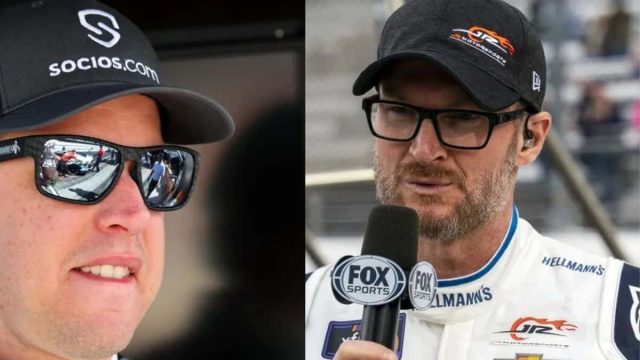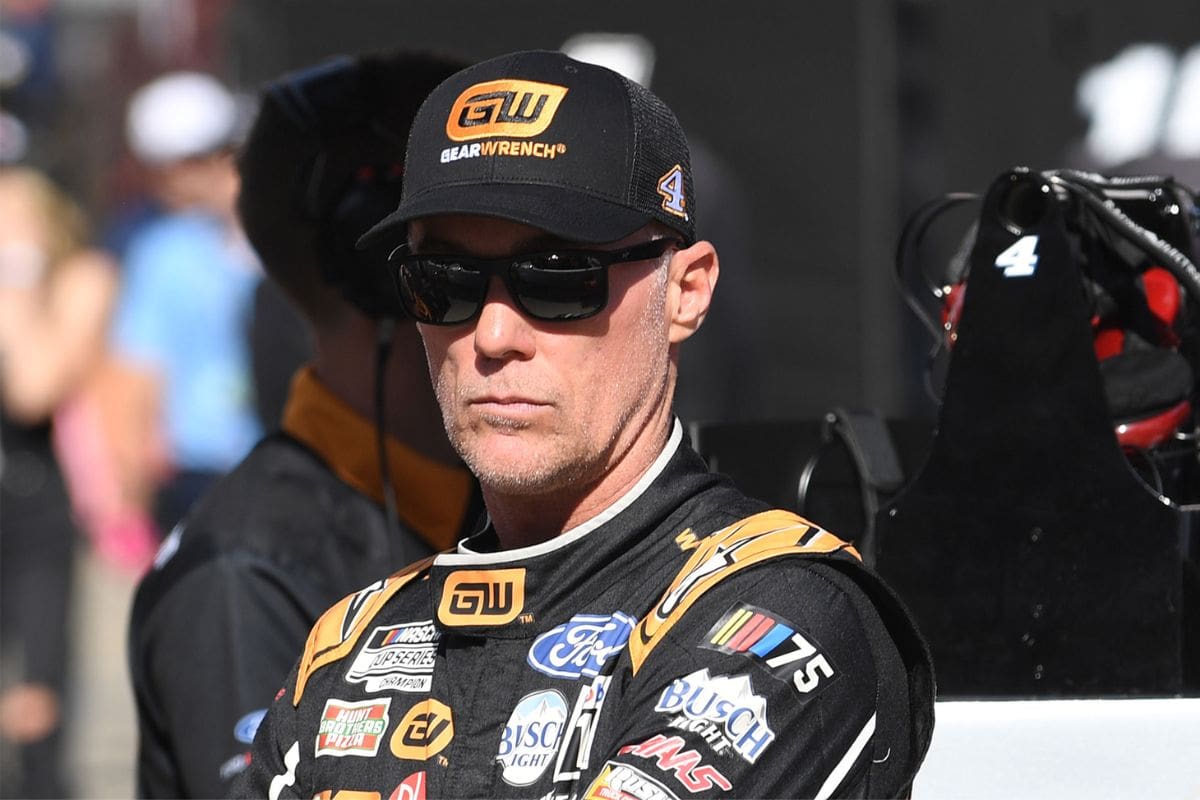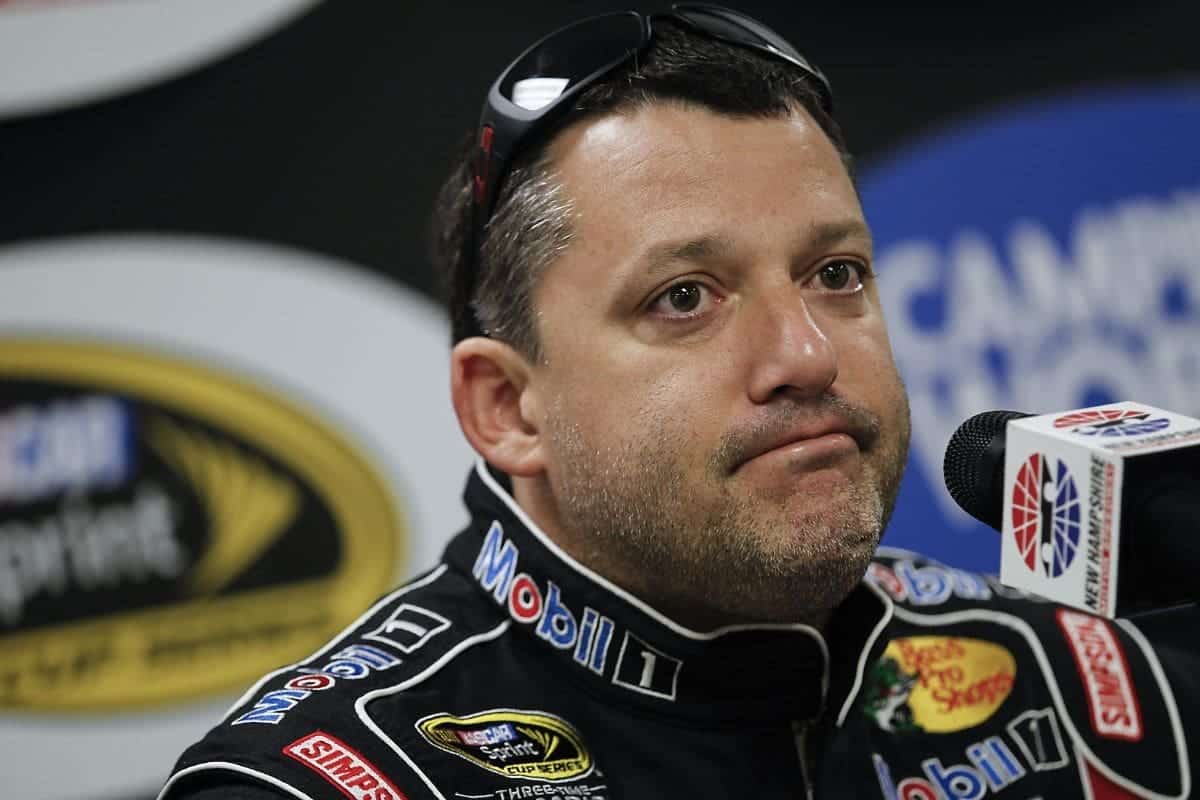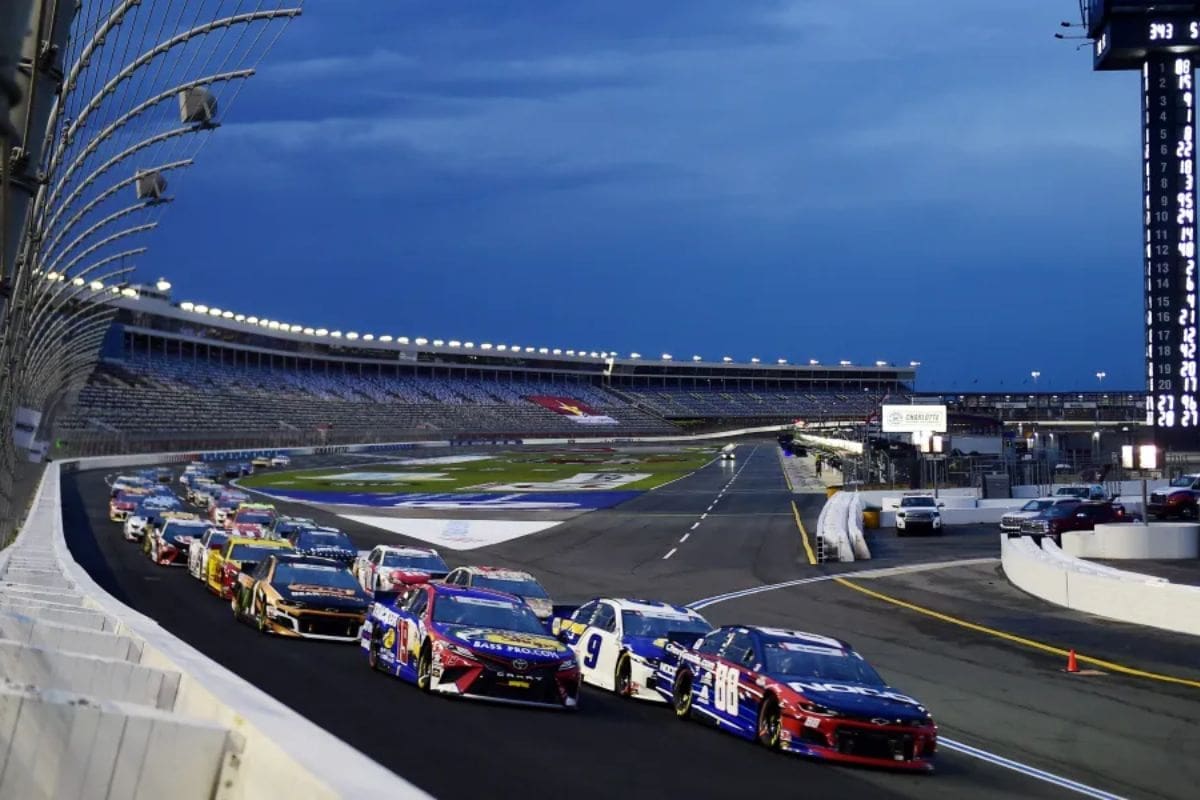Dale Jr.’s Sister and Keselowski Miss Opportunity: As Stewart-Haas Racing navigates the turbulent waters leading up to its potential closure in 2024, the missed opportunities by Kelley Earnhardt Miller and Brad Keselowski to capitalize on Tony Stewart‘s struggles present a compelling subplot within NASCAR’s intricate ecosystem. While financial strains and management issues plague Stewart’s team, the lack of strategic moves from RFK Racing and JR Motorsports highlights systemic vulnerabilities that could reshape the competitive landscape.
Key Highlights
- Kelley Earnhardt Miller and Brad Keselowski missed strategic opportunities amid Stewart-Haas Racing’s closure announcement.
- Financial limitations prevented Kelley Earnhardt Miller from expanding JR Motorsports into the Cup Series.
- Brad Keselowski disclosed a $30 million need for RFK Racing’s growth, missing chances to capitalize on Stewart’s team struggles.
- Systemic financial challenges within NASCAR hindered potential acquisitions or expansions by Dale Jr.’s sister and Keselowski.
- The NASCAR charter system’s environment restricted proactive moves by both Kelley Earnhardt Miller and Keselowski.
Stewart-Haas Racing’s Closure: A Storm of Change in NASCAR
Following the departure of drivers Kevin Harvick and Aric Almirola, Stewart-Haas Racing faced an unprecedented upheaval, resulted in the shocking announcement that the team would cease operations at the end of 2024. This decision marked the end of a 15-year legacy, filled with successes and challenges, and sent reverberations through the NASCAR world.
The initial tremors began when Harvick, a cornerstone of the team since 2014, announced his retirement. Harvick’s departure left a void that was not easily filled, given his critical role in securing championship titles and consistent top-tier performances. Aric Almirola’s subsequent exit compounded the issue, stripping the team of yet another experienced driver. The dual exits ignited a flurry of speculations about the structural integrity of Stewart-Haas Racing, fostering an atmosphere thick with uncertainty.
Insiders suggest that the loss of these key drivers exposed deeper, underlying fissures within the organization. Financial strains, evolving sponsorship landscapes, and internal management challenges were brought to the fore. Tony Stewart and Gene Haas, the visionary minds behind the team, found themselves grappling with these multifaceted issues.
Impact on the Racing Community
The announcement of Stewart-Haas Racing’s closure sent shockwaves through the racing community, highlighting systemic vulnerabilities within the NASCAR charter system while simultaneously revealing untapped opportunities hindered by financial limitations. The closure not only reflects the growing economic strain on teams but also emphasizes the pressing need for reform within the sport’s financial ecosystem.
Dale Earnhardt Jr.’s sister, Kelley Earnhardt Miller, and Brad Keselowski are notable figures who could have capitalized on the void left by Stewart-Haas. Nevertheless, their ambitions are stifled by the high costs associated with running competitive teams. This predicament is a stark reminder of the challenges even well-established names face in attempting to navigate NASCAR’s financial labyrinth.
Kelley Earnhardt Miller’s JR Motorsports, a highly successful team in the Xfinity Series, could have potentially expanded its footprint. Likewise, Keselowski, now a co-owner of Roush Fenway Keselowski Racing, might have seized the moment to bolster his team’s competitive edge. However, the exorbitant costs involved in obtaining charters and maintaining operational efficiency are significant deterrents.
I’m 30m short at the moment.
Friends say we should start a GoFundMe 🤷🏼 https://t.co/op0y5o5UYc
— Brad Keselowski (@keselowski) May 28, 2024
The closure of a powerhouse like Stewart-Haas serves as a cautionary tale and an urgent call for NASCAR to re-evaluate its charter system. The latent opportunities for new or existing teams to rise through the ranks remain tantalizing but out of reach under the current financial constraints. This scenario paints a vivid picture of a sport on the brink of transformation, yet held back by its economic realities.
Other Teams Echo Tony Stewart’s Misery
Amid Stewart-Haas Racing’s closure, several other teams are dealing with similar financial challenges, highlighting a broader issue within NASCAR’s economic framework. The domino effect extends far beyond SHR, with teams like 23XI Racing and Trackhouse Racing grappling with their own set of economic hurdles. These struggles emphasize a systemic issue affecting the sport’s sustainability and competitive balance.
23XI Racing, co-owned by Michael Jordan and Denny Hamlin, has been contemplating making its No. 50 ride a full-time contender. However, the financial landscape poses significant barriers. The team’s ambitions are hindered by the steep costs associated with securing and maintaining a charter, reflecting the broader fiscal challenges within the sport. The charter system, while intended to provide stability, has inadvertently created a environment where only the well-funded can thrive.
Trackhouse Racing faces a different but equally pressing dilemma. With a surplus of talented drivers, such as Shane Van Gisbergen, but insufficient full-time cars, Trackhouse is caught in a balancing act. The financial strain of expanding their fleet to accommodate more drivers is a demonstration of the financial pressures that even relatively successful teams endure. This situation highlights a critical point: economic viability in NASCAR is precarious, impacting team decisions and the broader competitive landscape.
Dire Financial Situation of RFK Racing and JR Motorsports
Facing significant financial hurdles, RFK Racing and JR Motorsports are grappling with the harsh economic realities of NASCAR, despite their on-track successes. RFK Racing, energized by Brad Keselowski’s co-ownership, has demonstrated remarkable competitive strength. Chris Buescher’s three victories last year, coupled with his three podium finishes in 2024, highlight the team’s potential. Keselowski himself has achieved five top-five finishes and secured a notable victory at Darlington this season. However, Keselowski has openly disclosed the team’s precarious financial standing, emphasizing the urgent need for an additional $30 million to facilitate their expansion ambitions.
Similarly, JR Motorsports, renowned for clinching three Xfinity Championships, faces its own financial challenges. The team’s CEO, Kelley Earnhardt Miller, has been forthcoming about their aspirations to venture into the Cup Series but has revealed the significant financial barrier they confront, also pegging their requirement at $30 million. This financial pressure is particularly concerning given the team’s storied success and competitive edge in the Xfinity Series.
I’m 30m short at the moment.
Friends say we should start a GoFundMe 🤷🏼 https://t.co/op0y5o5UYc
— Brad Keselowski (@keselowski) May 28, 2024
The contrast of on-track successes with off-track fiscal struggles paints a vivid picture of the challenges inherent in NASCAR’s financial ecosystem. Both RFK Racing and JR Motorsports exemplify organizations that, despite their competitive achievements, are hindered by the economic demands of the sport.
NASCAR’s Economic Challenges and Greed
NASCAR’s economic landscape is burdened by a confluence of systemic issues, including the controversial Next-Gen car rollout and escalating logistical costs, which collectively intensify the financial strain on teams. The introduction of the Next-Gen car was intended to streamline expenditures, but it has inadvertently heightened costs due to unforeseen technical complications and the need for specialized parts. This has placed a significant strain on team budgets, already stretched thin by the logistics of transporting cars and personnel across the country on a weekly basis.
The economic challenges are further compounded by NASCAR’s revenue sharing model, which has sparked discontent among team owners. Michael Jordan, co-owner of 23XI Racing, has been particularly vocal about the inadequacies of the current business structure. He projects that without a more fair distribution of media profits, teams could face losses totaling up to $200 million over the next five years.
“In all partnerships, if you grow the pie, that means your business is going to continue to grow. And to grow the pie, you’ve got to make sure everybody’s healthy within the partnership. If our ownership in NASCAR is losing money and NASCAR’s the only one making money, that’s not a good partnership.” – jordan
NASCAR’s reluctance to address these financial disparities could lead to further instability, evoking memories of the recent troubles faced by Stewart-Haas Racing (SHR). The sport must heed the concerns of influential figures like Jordan and adapt its economic policies. Without such reforms, the viability of many teams hangs precariously in the balance, threatening the competitive integrity and future of NASCAR.
News in Brief: Dale Jr.’s Sister and Keselowski Miss Opportunity
The issues faced by Stewart-Haas Racing, coupled with missed opportunities by key industry figures, highlight the intricate challenges within NASCAR.
The impending closure reflects broader systemic issues, including financial instability and management inefficacies.
The struggles of RFK Racing and JR Motorsports further shed light on the pervasive economic difficulties and competitive challenges.
The scenario calls for a reevaluation of strategic alliances and financial models to foster resilience and growth within the racing community.
Our Reader’s Queries
Q. How many sisters does Dale Earnhardt junior have?
A. He shares family ties with an elder sister named Kelley, an elder half-brother named Kerry from his father’s initial marriage, and a younger half-sister named Taylor Earnhardt-Putnam from his father’s third union.
Q. Do the Earnhardt siblings get along?
A. Kelley Earnhardt maintains a tight-knit bond with her brother, reflecting their shared passion for stock car racing. Both siblings play pivotal roles in the sport’s landscape, with Kelley assuming the role of chief executive officer at JR Motorsports, an Xfinity Series team owned by her brother.
ALSO READ: Dale Earnhardt Jr. Slams Cup Teams’ Financial Problems



